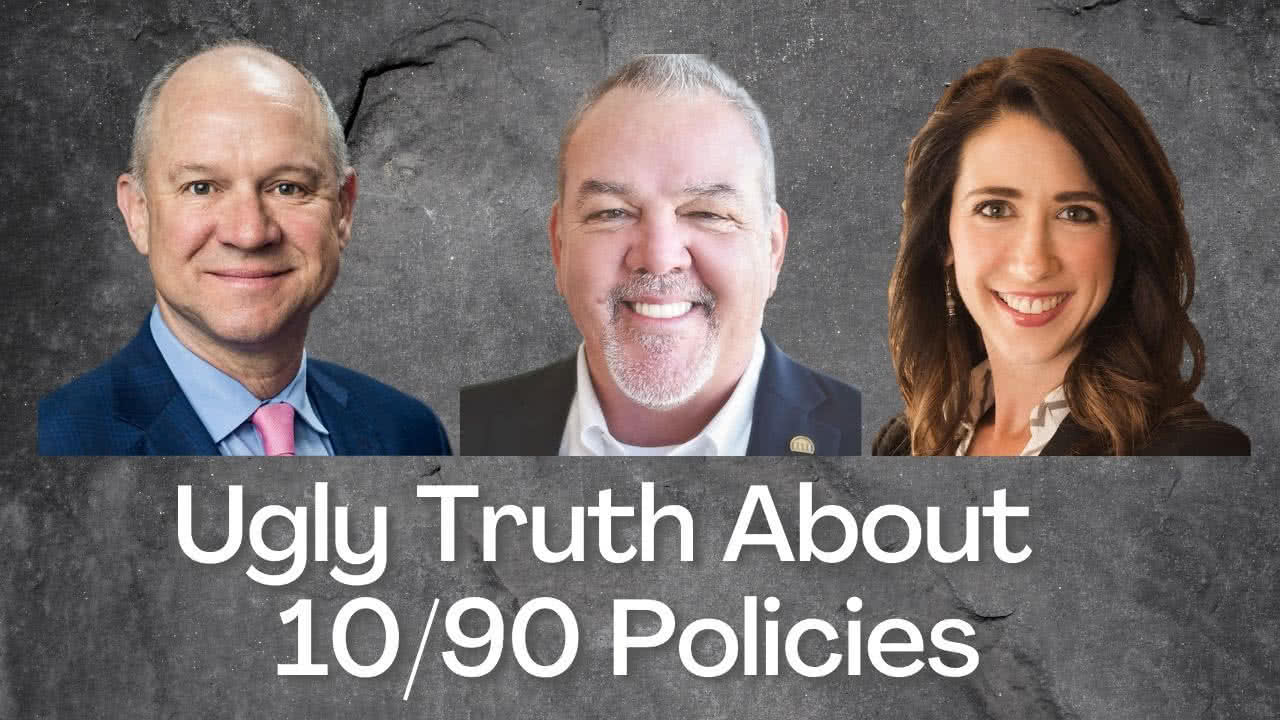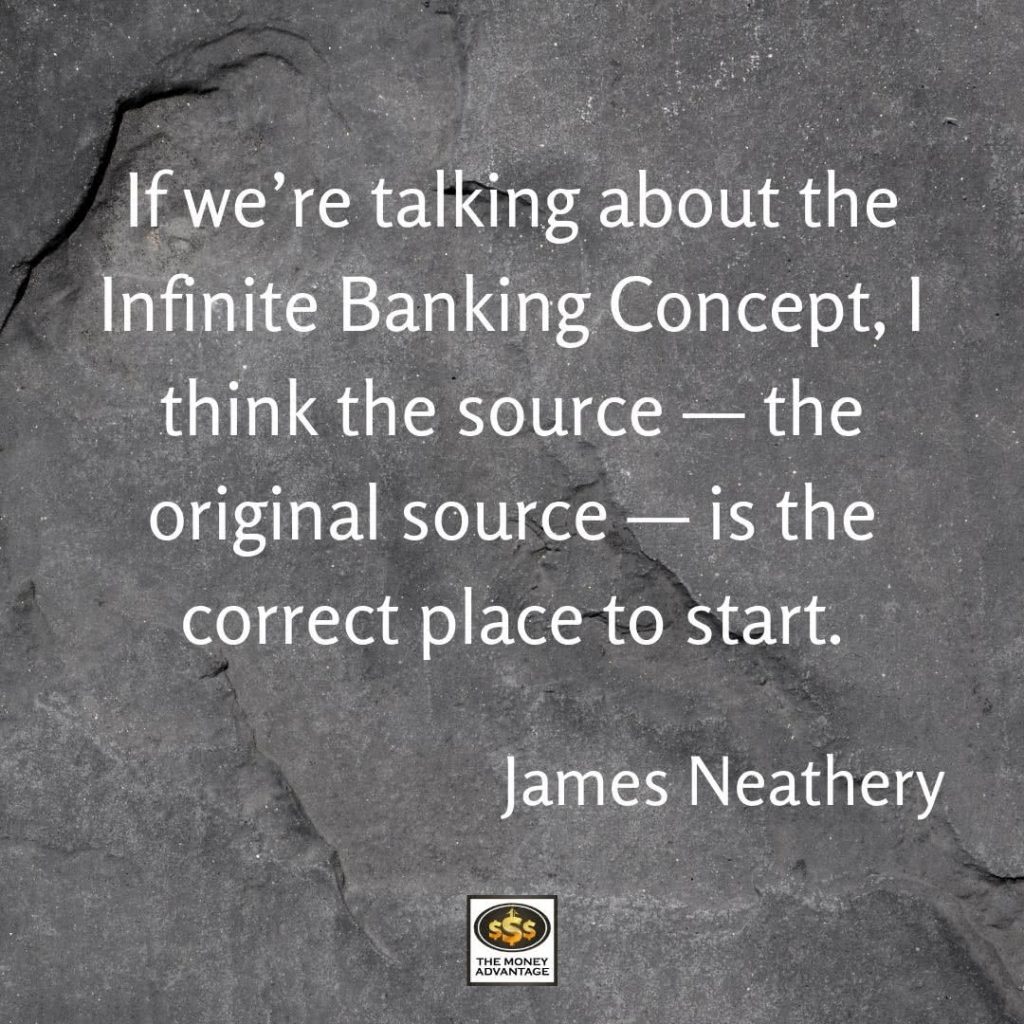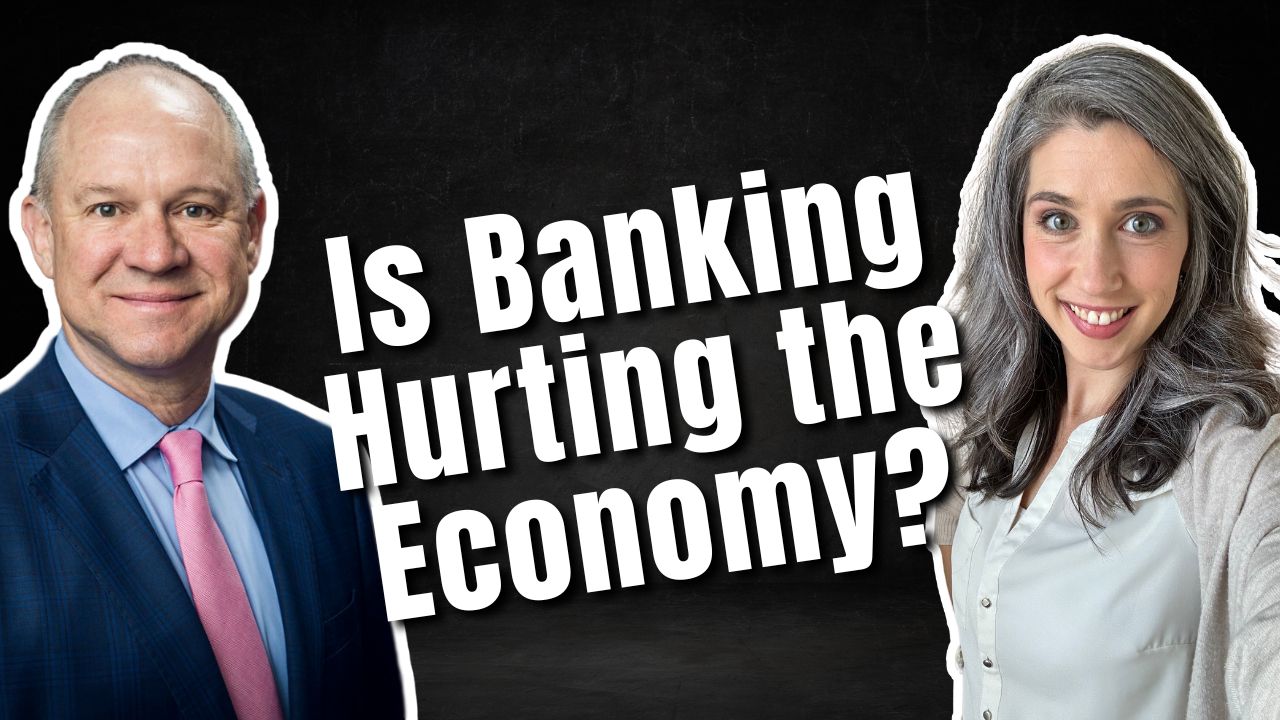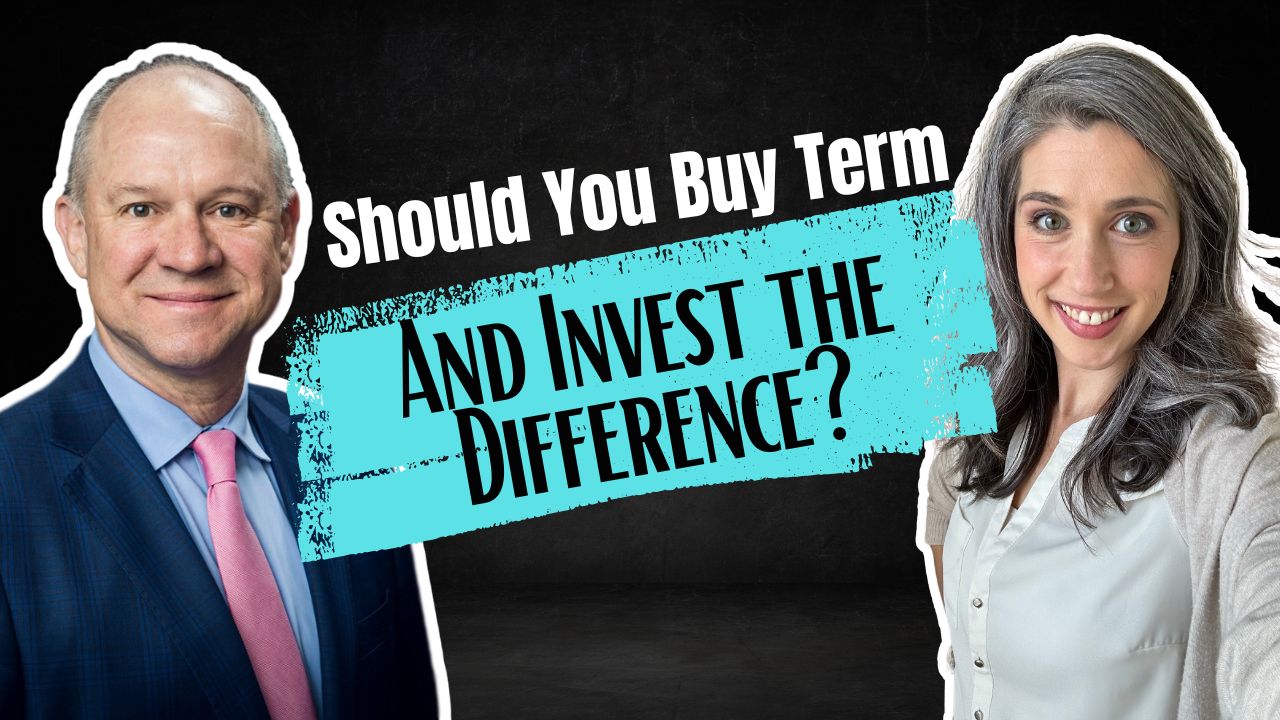
The Ugly Truth About 10/90 Infinite Banking Policies – James Neathery
Want maximum immediate liquidity with an IBC policy? Planning to fund a 10/90 infinite banking policy and then take max loans to fund real estate? Are these double-dipping returns too good to be true?
STOP. Listen to this first.
The allure of making an IBC policy better than even the creator of the term IBC has many people shopping for “Skinny Base” whole life policies with maximum early cash value.
But there are problems on the horizon. And we’re scared of what 10/90 infinite banking policies mean for many who want guarantees.
Today, we’re talking with James Neathery, fellow IBC thought leader, Nelson Nash Institute certified IBC practitioner, and executive producer of the best-selling documentary on the Infinite Banking Concept, Banking with Life. In this rare panel discussion, we’re collaborating to give you the truth about policy design and what you need to understand that most financial advisors will never tell you.
So, if you want to make sure you build your IBC policy on solid rock and not shifting sand… tune in now!
Podcast: Play in new window | Download (Duration: 1:09:19 — 79.3MB)
Subscribe: Apple Podcasts | Spotify | Android | Pandora | RSS | More
Table of contents
Illustrations Aren’t Always Helpful
[5:45] “Specifically speaking about equipment financing in his first book, Becoming Your Own Banker... [Nelson Nash] said… if he were to rewrite the book, he would not put illustrations in the book. Because they serve, really, as a point of confusion. You know, you cannot look at a life insurance illustration—the tabular detail where all the numbers are—and make a coherent decision.”
We think this is a significant point because looking at the numbers seems like a logical step. Yet the illustration is a projection of what we expect to happen, not a guarantee of the policy. And looking at all of the numbers can be overwhelming and muddy the concept as a whole. Not to mention, if you’re looking for early cash value and comparing illustrations, you may even overlook the big picture.
[8:15] “In the agent’s heart of hearts, they think that this is right, squeezing the base down…so you can have a high PUA or high cash value, or a high immediate loan value. But then they don’t realize what they’re sacrificing in the future on those policies. And there is absolutely a trade-off.”
Thinking Big-Picture
While the goal of infinite banking is to create a system of wealth for yourself that is liquid, reliable, and certain, it is often viewed as a magic pill. People want a quick solution, with quick cash value build-up. They want a magical pool of money to dip into. Unfortunately, this short-term thinking can prevent you from seeing and fully appreciating the long-term benefits of whole life insurance.
Early cash value build-up isn’t inherently good or bad—it depends on the purpose of your money. However, it isn’t magic. It still takes time and diligence to maintain a policy. Life insurance is meant to be a generational tool—well beyond even your own life.
[11:05] “You are afraid to capitalize, you are afraid to pay a premium if you have to have access to 100% of it.”
James Neathery isn’t disparaging access to capital, however, he is pointing out a system of flawed thinking here. While a 10/90 split may give you access to more of your premium immediately, it also tends to be a slippery slope. In James’ experience, he has seen people take out an early policy loan and feel overconfident in the early cash value, and repay the loan irresponsibly. This, and other factors, can actually limit the long-term benefits.
Don’t Steal the Peas
In Nelson Nash’s book, Becoming Your Own Banker, he equates owning a life insurance policy to being a grocery store owner. And as the owner, you’ve got canned goods like peas out on the shelf. As the store owner, you could argue that it’s cheaper for you to take the peas from the back room, instead of paying for them upfront. However, in doing so, you must sell your product at a higher price in order to retain the same profits. So you kill your profitability by stealing from the back end. Furthermore, stealing the peas sets the example for your workers.
When you are creating your infinite banking system, it may also be tempting to take the easy way out. You may not want to pay the loans back or pay them on any kind of schedule. But in the long run, this only hurts your policy. You have the right to do this, but you must also think about how you want your policy to function long term. Not to mention, consider potential emergencies. And the fact of the matter is that defaulting on your policy loans can create a taxable event, in addition to permanently reducing your cash value.
10/90 Infinite Banking Policies and the Long-Term
[21:20] “Every year that we are alive, every year we get closer and closer to mortality. So [cost of] the death benefit goes up, right?”

For example, you can purchase a term insurance policy at 30, and the same amount again at 40, but the policy you buy at 40 will cost more. And it costs more because you’re closer to mortality, so it’s funded over a shorter time frame. James then argues that the more you front-load a policy, the harder it becomes to maintain that premium.
While 10/90 infinite banking policies may offer more liquidity in the early stages, they can actually prevent long-term dividend growth.
[23:55] “You want as much liquidity—and I agree with that, you want liquidity in the early years, no question—but you don’t want to distort the policy to get artificial liquidity… Why would you not pay, or stop yourself from the ability to pay a premium, when it’s just become extremely efficient in year five, six, seven, or eight?”
[32:00] “You go look at the 10/90 construct, or the 5/95, the 15/85 and just compare out at age 120… So when you’re looking at all those numbers and being mesmerized by the first year or second year cash value, go ahead and go to the 120th year. Look at the guaranteed cash values compared to the non-guaranteed cash values… And when you see a five and seven, and ten times difference—you tell me if that life insurance company is going to pay that dividend.”
Giving Up Guarantees with 10/90 Infinite Banking Policies
Contractually, your policy’s cash value must grow each year. It must grow so that it equals the face amount of the policy in year 120. The face amount is also growing from the day you put the policy in place. James then asks, do you want a small death benefit at age 120, or a large death benefit? In all likelihood, you probably want as much death benefit as possible to pass on to your heirs.
The best way to have this death benefit guaranteed for life is to have as much base as possible. However, 10/90 infinite banking policies are something to be cautious of if what you’re seeking is growth and guarantees. You must ask yourself what you want from your life insurance in order to know what will work for you.
[47:15] “If we’re talking about the infinite banking concept, I think the source—the original source—is the correct place to start. Nelson’s Becoming Your Own Banker book, the second book Building Your Warehouse of Wealth, and some of the other books that are available at the Nelson Nash Institute.”
About James Neathery
James Neathery specializes in providing strategic financial advice based on decades of research and experience in the fields of finance and economics. James is a disciple and student of R. Nelson Nash, the creator of the Infinite Banking Concept®. He is also a student of the Austrian school of economics.
James holds several designations, maintains multiple affiliations, and is active in the financial services industry. He has been in the life insurance industry for over 30 years, has been educating clients, and personally practicing the Infinite Banking Concept™ for over 17 years.
James C. Neathery & Associates, Inc. has provided sound, successful advice to thousands of clients. Over the years, he has helped them protect millions of dollars in wealth and assets through several boom and bust cycles in the U.S. economy.
James is the Executive Producer of the best-selling documentary on the Infinite Banking Concept, Banking With Life. The powerful information in this film is being used by financial professionals across the country to educate their clients on how to take control of their money by solving the banking equation in their lives.
Book A Strategy Call
Do you want to coordinate your finances so that everything works together to improve your life today, accelerate time and money freedom, and leave the greatest legacy? We can help! Book an Introductory Call with our team today https://themoneyadvantage.com/calendar/, and find out how Privatized Banking, alternative investments, or cash flow strategies can help you accomplish your goals better and faster. That being said, if you want to find out more about how Privatized Banking gives you the most safety, liquidity, and growth… plus boosts your investment returns, and guarantees a legacy, go to https://privatizedbankingsecrets.com/freeguide to learn more.
Fractional Reserve Banking Creates Inflation: Infinite Banking is the Solution
Inflation causes everything to feel more expensive, so what do you do to protect your money from inflation? Today, we’ll explore the link between inflation and fractional reserve banking, and how Infinite Banking is the sound money solution. A thought-provoking journey through inflation, fractional reserve banking, and the revolutionary concept of infinite banking. This episode…
Read MoreBuy Term and Invest the Difference: Here’s What’s Wrong
Are you trying to decide which type of life insurance to buy? You want to protect your family in case something happens, so how do you do it best? Whole life insurance is often rejected as expensive and a poor “investment,” while mainstream opinion leans in favor of the “buy term and invest the difference”…
Read More


